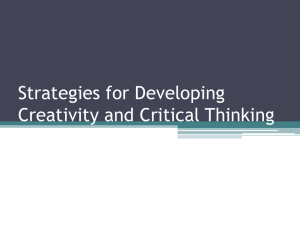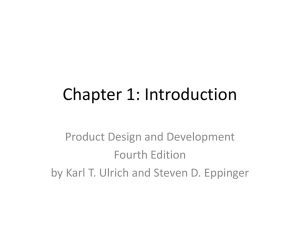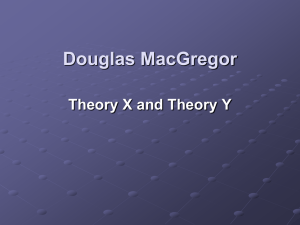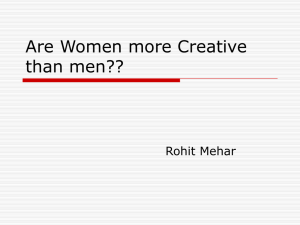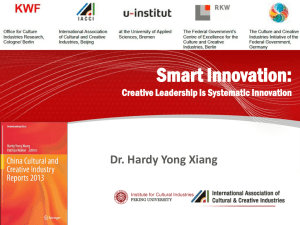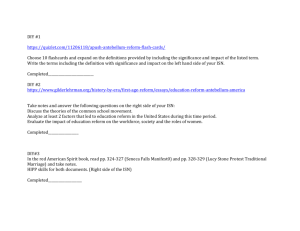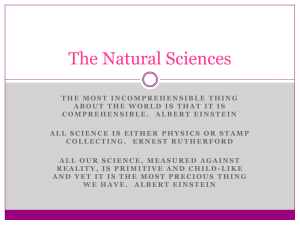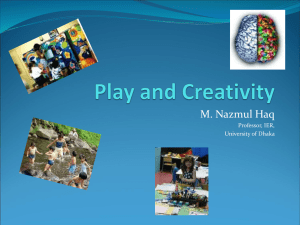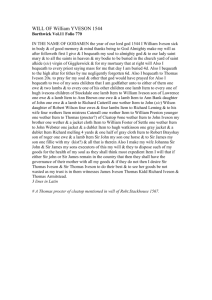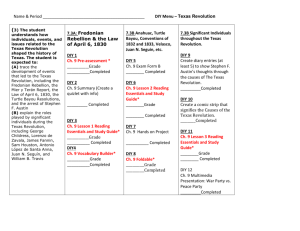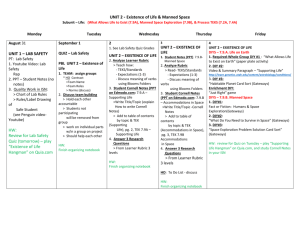Reinterpreting the Public Space: Creativity in the City
advertisement
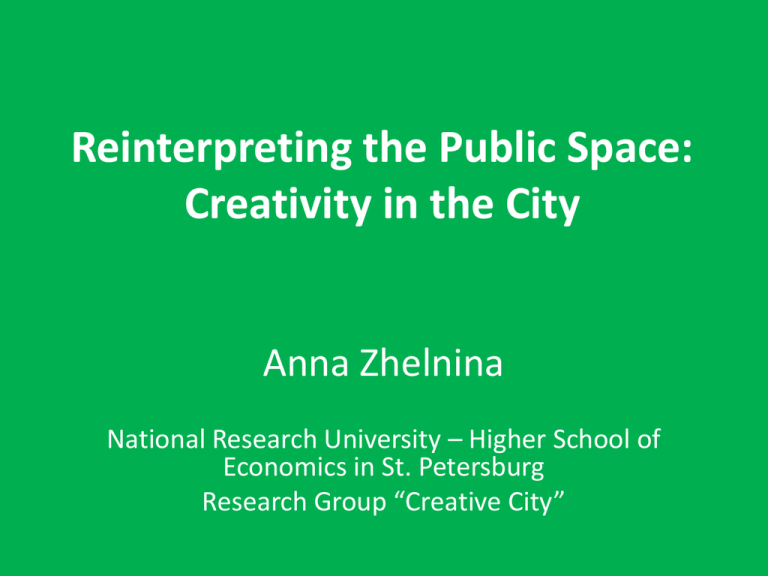
Reinterpreting the Public Space: Creativity in the City Anna Zhelnina National Research University – Higher School of Economics in St. Petersburg Research Group “Creative City” Bottom-up transformation of urban space by the means of art • New actors – new visions of comfortable urban spaces • Graffiti, guerilla gardening, do-it-yourself modifications: from “pure resistance and contestation” to “public place beautification” [Visconti et al. 2010] • Role of the social and political context of transformation • Dynamic, networked character of initiatives Research Group “Creative City” • Mapping initiatives in St Petersburg • Studying the professional biographies and networks of activists What are the different ways to (creatively) claim the right to the city? Creativity as a resource of counter-public(s)? Analytical frameworks • Right to the city (Lefebvre, Harvey) • City within a city, politicization (Kurt Iveson) • Counter-publics (Nancy Fraser) • Networked creativity ‘insurgent’, ‘do-it-yourself’ (DIY), ‘guerrilla’, ‘everyday’, ‘participatory’ and/or ‘grassroots’ urbanism (Iveson 2009) The right to the city is, therefore, far more than a right of individual access to the resources that the city embodies: it is a right to change ourselves by changing the city more after our heart’s desire [Harvey 2003: 931]. • “there are holes and chasms. These voids are not there due to chance. They are the places of the possible.” [Lefebvre, 1996: 156]. • Cities as totalizing projects, but not totalizations [Amin, Thrift] Urban Creativity • actions emerging between the cracks of formal urbanism [Iveson 2013: 943] • ‘propose alternative lifestyles, reinvent our daily lives, and reoccupy urban space with new uses’ [Zardini 2008: 16] Filling the urban gaps with creativity • Street-artists (ad-busters) • Public art festival • “Urban activists” aiming to change the environment [e.g. DIY urban festival] • Educational loft focusing on urban issues • “building a politics to connect the practices is a matter of both appropriation and political subjectivization, in which practitioners make themselves parties to a disagreement over the forms of authority that produce urban space” [Iveson 2013: 943] Исправляй!Угарай! / Modify!HaveFun “Voice of the streets” scandal Russian means Sober DIY urban action marathon “Snail” “Frame” I knew I had to choose a different way, not fighting for the system. Not changing the system, but making my own system… Well, at least a small one, where I can do my work in peace and comfort… Today you need to be out, in the streets, do it all with your own hands and put it in the street immediately. Galleries and institutions are outdated. And they [other artists - AZ] have their space and position. We’re kind of I’m not interested in non-expert together, but everyone on her own. I opinions. It can really disturb can see when I loose compared to you sometimes, unsettle you … them, but altogether we win in the end. One can work for commerce. Or to become famous. Of simply to I like to take over new spaces, where change the place so much, so new people are, the new that people would say ‘thank contemporary people, who live their you’ and think you are a hero. lives in these spaces. And they live, • Direct changes, new visions of the ‘good urban space’, voice/ lifestyle/ values of a milieu / social group/ individual • Networked creativity (legitimization and support) – potential for collective action? • DIY as a new form of contentious politics? [Douglas 2011] • Creativity as ‘weapon of the weak’?

